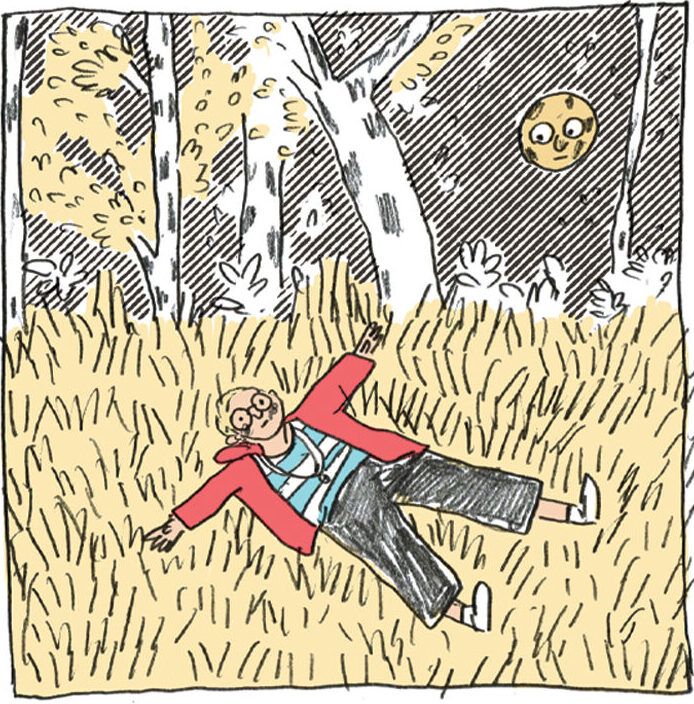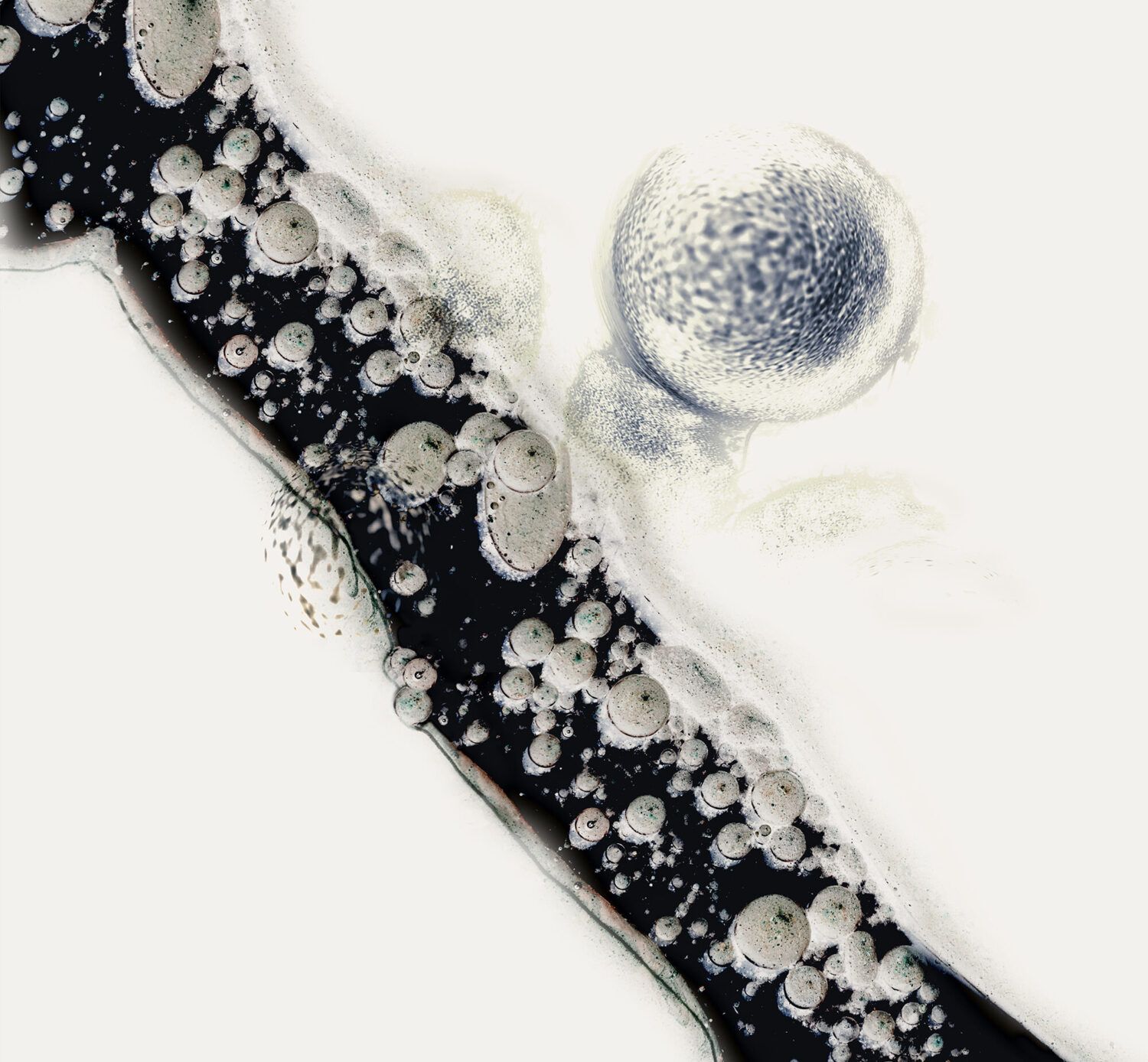Featured artists
Ahead of our ‘Low on Spoons, Not Identity’ exhibition, we spoke to some of the artists joining us to explore identity and chronic illness and how this feeds into their art. We are thrilled to have these accomplished artists involved in this project.
Sarah Lippett
Sarah Lippett is an illustrator, artist and author known for her comic strip style tackling social and healthcare issues, big and small. Her latest work – The Distance, Voices From Ukraine – is a 52-page comic sharing stories from Ukraine over the last seven years.
Why did you join the exhibition?
Comics in their form of text and image have a special power to address our emotional sensibilities. The exhibition offers an opportunity for further audiences to learn and gain an understanding of what it’s like to experience living with chronic illness through the power of sequential art.
Tell us what identity and chronic illness means to you.
I have lived with two chronic illnesses since I was 7 years old, that’s 31 years. It’s embedded in my identity but it’s certainly not all that I am. I have periods, sometimes years, without significant disruption to my life – other times it’s all there is. I have found ways to cope when I’ve needed to, and more often than not it’s been through processing the physical and emotional pain through drawing. It’s a release for me but also a way to connect and share with others going through similar struggles.
How does your work relate to chronic illness?
My work speaks directly of chronic illness. All the comics shared in this collection were created when I was processing my nephrotic relapse. My kidney condition can escalate very quickly. One day I was living a healthy and busy life, running five miles a day, and the next my kidneys were failing, I was sick, weak, could hardly lift myself from the sofa, on high dosage steroids and I couldn’t see remission in sight. The comics reflect the life altering reality of chronic illness through direct and raw text and image.
Yasmin Crawford
Yas Crawford is an internationally awarded fine art photographer who has exhibited in the UK and Europe. Born in Pembrokeshire, Wales, landscape, geology and biological make-up have subliminally influenced her work. Today Yas is working in what she calls the ‘grey space’ between art and science, with her research touching on mapping evolutionary change and the impact it has on mankind.
Why did you join the exhibition?
With lived experience of chronic illness, I am participating in the ‘Low on Spoons, Not Identity’ exhibition both as a participator of chronic illness and as a visual artist who tells stories through her imagery of ambiguity and the unknown: the space between art and science. I have selected images for the exhibition that were created for the series ‘Cellular Flow, I’ve been thinking’ and were exhibited in Italy from December 2022 to February 2023.
How does your work relate to chronic illness?
Abstraction provides a safe place for the audience to view the art. They can read into it what they want, or not! I am purposeful not to define the audience by any illness. The images’ ambiguity foreshadows the future, complex and owning a place among a fluid and liquid environment.
The images I have submitted – Cellular IIa, VIIc & VIIIa – reflect the journey of someone with a long-term illness. The images describe an unsettling journey of chronic illness, its complexity, beauty and uncontrollable flow are delicately combined in an otherworldly biological space.
Jacob Chandler

Jacob Chandler is a sculptor whose work focuses on movement, physical power and action. Often using unusual techniques, Jacob has been commissioned to create large public works of art in towns and cities across the UK. In July Jacob’s work will be showcased alongside Banksy and Dali as part of Shewsbury’s annual art trail.
Why did you join the exhibition?
Low on Spoons resonates with me. I’ve been chronically ill since I was about 12, I went from massively active to bed bound in a matter of days. It was as though I’d caught a flu that I just couldn’t recover from. I found out later this was a result of Ehlers-Danlos syndrome and colitis.
I didn’t ‘come out’ as disabled until I was 27, and still wrangle with the word. First hand experience viewing athletes excelling in the face of physical disability, through my work on One Giant Leap for Humankind, made me realise how amazingly adaptive people can be and that you can thrive through adversity.
I wouldn’t be doing what I do now if it weren’t for my health conditions. Although sometimes it’s hugely painful physically and emotionally, I love who it has forged me into. Low on Spoons celebrates this excellence in the face of adversity, and this resonates with me and where I am on my journey to accepting life with chronic health issues.
How does your work relate to chronic illness?
I aim to represent physical perfection in the forms I create, capturing the most athletic and powerful moments at points of transition from one action to the next – this has been my way of processing my own fall into chronic illness.
These poses are held for fractions of seconds, the tension more often felt than seen. Not only are these moments of power transitory, but the career spans of these elite athletes are also fleeting – the human condition trends in one direction to eventual demise.
In my initial body of work the pieces are all titled “Poise and…”. When spoken, this sounds like ‘poisoned’, adding to the rhetoric that health is fleeting. The machine-like forms I create feel removed from this human condition and the use of materials that will endure far beyond a human lifespan emphasises this.


